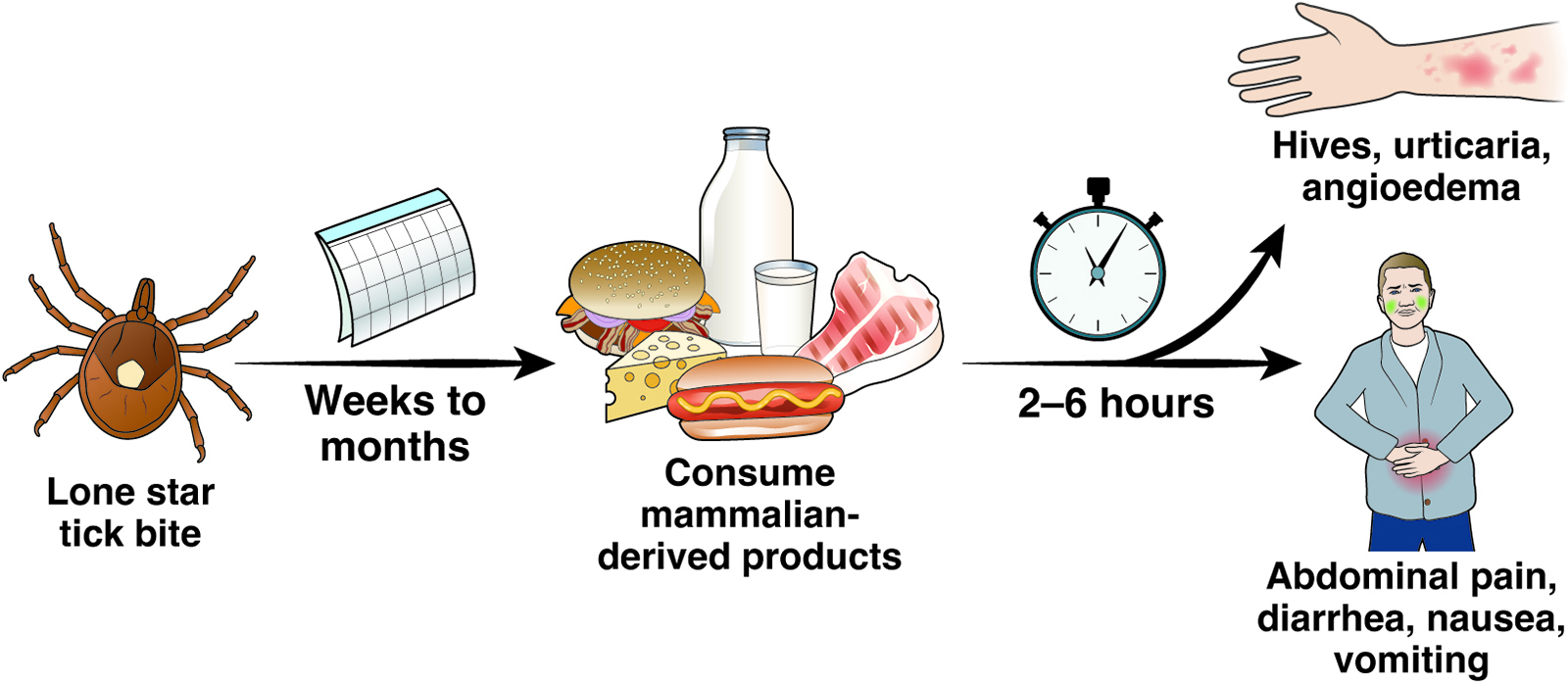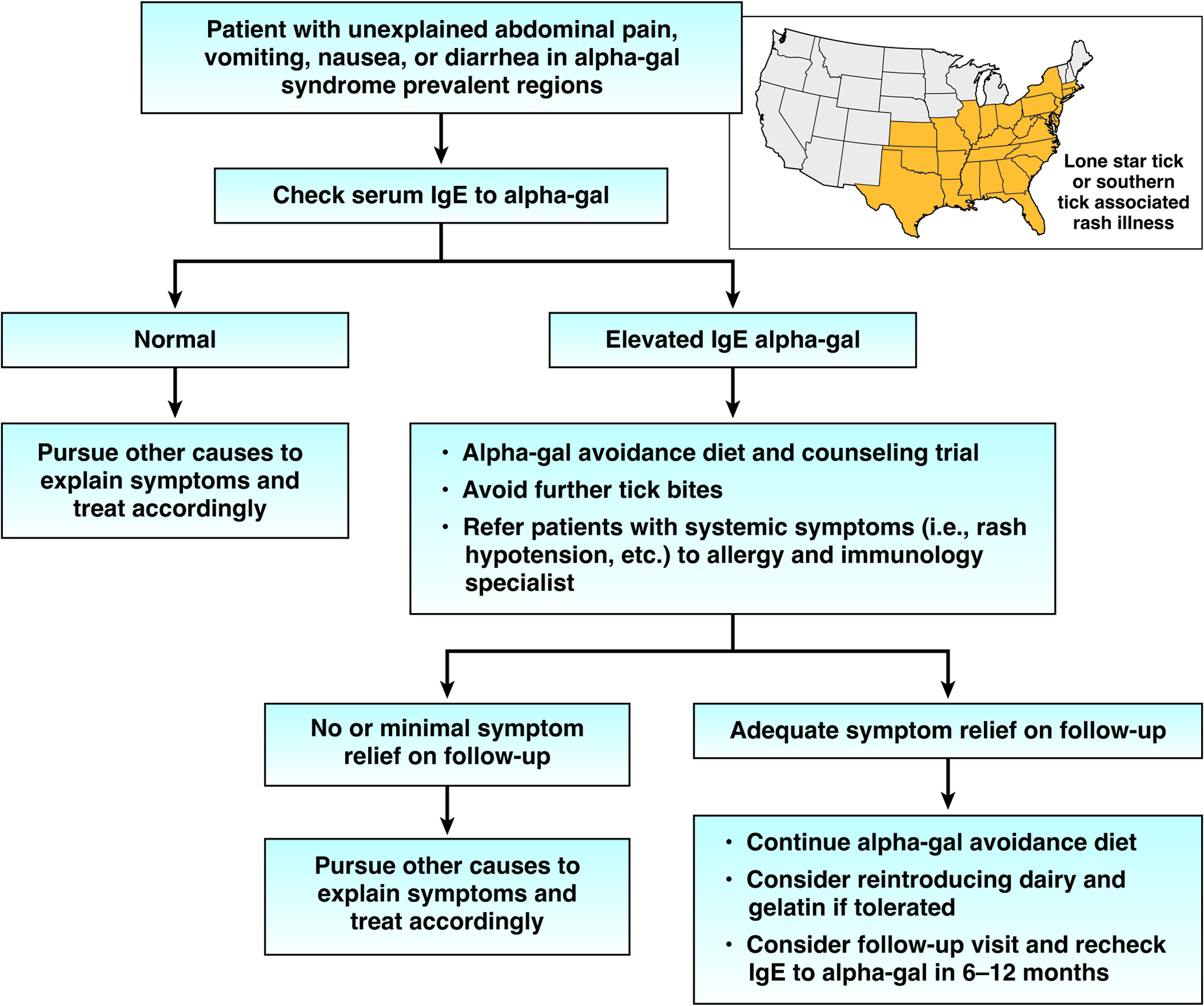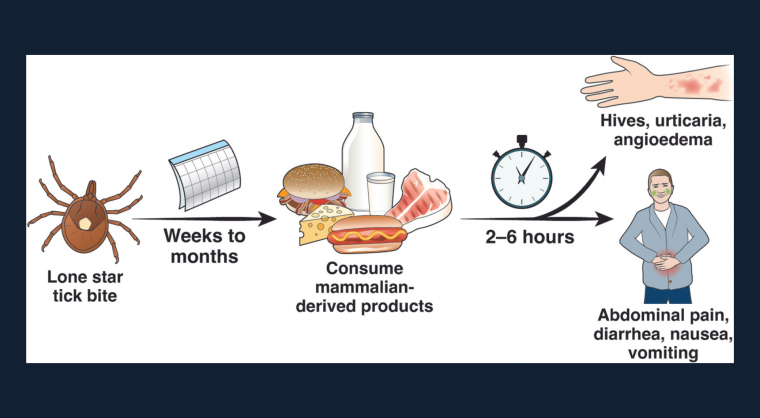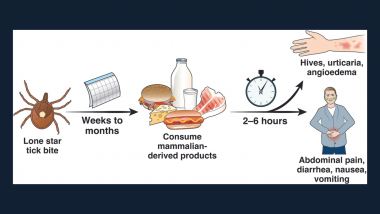AGA released new clinical guidance to help you identify if unexplained digestive symptoms are due to alpha-gal syndrome, a food allergy that is caused by lone star tick bites.
Alpha-gal syndrome is an allergy that causes a patient’s body to react to eating meat from mammals and products made from mammals. Symptoms usually start 2-6 hours after eating the mammalian meat or food.

You should consider alpha-gal syndrome in patients with unexplained symptoms of abdominal pain, diarrhea, nausea and vomiting, particularly those who live or have lived in an alpha-gal–prevalent area (this includes the Southeast, mid-Atlantic, Midwest and East Central U.S. regions).
For patients with suspected alpha-gal, you should test them using serum testing that looks for immunoglobulin E antibodies (IgE) to alpha-gal. Patients with these antibodies may have alpha-gal allergy. The main treatment for alpha-gal allergy is to not eat foods that contain alpha-gal. This includes mammalian meat, fat and products made from them.

Quick watch:
Co-authors Drs. Jana Al-Hashash and Sarah McGill share their takeaways from the clinical practice update.
Read the full AGA Clinical Practice Update on Alpha-Gal Syndrome for the GI Clinician: Commentary, published in Clinical Gastroenterology and Hepatology.
Watch this segment on NBC News discussing alpha-gal syndrome and symptoms to watch for.













